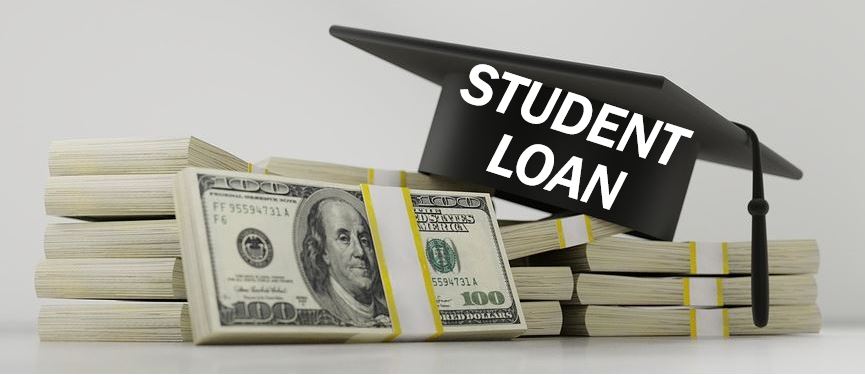Just imagine that you receive a phone call from an unknown number and a stranger asks you to help pay off your Great Lakes student loan or any student loan. Now all you have to do is just provide them your personal details and an upfront fee. This may sound nice but is that possible? Even though you may have not received any phone call, you may have seen many advertisements running on social media offering help to manage your student loan debt.

The U.S. Department of Education (ED) provides certain legal student loan repayment services and ways to minimize student loan payments, all of which are free to apply through the official loan service provider. Don’t pay for the support if you can get it for free!
Below are some examples of student loan debt relief scams that can harm you. We request you to go through these points and save yourself from getting into trouble.
-
You’re Asked to Pay an Upfront Cost or Monthly Fees
One common example is getting a phone call from a student loan company asking you to pay a certain amount of money in return for assistance to help you with your student loan. It’s important that you make sure you are receiving a call from your official loan service provider.
If you are struggling to pay for the loan then you should contact your loan service provider right away. Remember that they are there to help you so that you can pay for your student loan without a problem. Switching to a more affordable repayment plan is always possible and remember that this service is free.
Your loan servicer works on behalf of the ED to
- Collect your loan payments;
- Answer any questions you have about your loans;
- Help you decide which repayment plan best suits you; and
- Help you switch to a new plan at no cost.
-
You’re Promised Immediate Loan Forgiveness
Remember one important thing, there is no way of getting an immediate and total loan forgiveness or cancellation. A scammer will tell you that they will easily help you get rid of your loans. Although there are some legitimate government programs like the Public Service Loan Forgiveness program.
These programs take time before your loans can be forgiven, it requires a process, and they’re also only a few individuals that qualify for these programs.
If you are interested in this type of program, you should contact directly a representative of the ED to find out whether you qualify or not for loan forgiveness. You can also seek help from your loan servicer at no cost. Based on your job, disability, or other circumstances your loan provider will show you the right path for loan forgiveness.
-
You Must Provide Your FSA ID Password
You must know that neither your loan provider nor ED will ever ask you for your FSA ID password. Your FSA ID is very important, it gives you access to sign in to your legally binding documents electronically. Just like your signatures, this FSA ID has the same legal status.
It is recommended not to give anyone your FSA ID password and should never allow anyone to create it for you. Upon sharing your FSA ID password, you are allowing a debt relief company or a random person to take any action they choose, make decisions for you, and act on your behalf.
Now if that debt relief scam company receives a certain amount of money from you in the promise to add it as a payment to your loan and does not make any payments on your behalf, then only you will be accountable for those unpaid payments, interest charges, and late fees.
In addition, you must be aware that some debt relief companies may require borrowers to sign legal agreements that would allow businesses to communicate on your behalf with your loan service provider. This can be dangerous as you may lose direct communication with your loan service provider and your student loan account with such frauds.
What to do?
You should never disclose your Federal Student Aid IDs or Social Security numbers or sign a power of attorney agreement with anyone. If you have already done this then immediately reach your loan servicer and tell them the situation to regain control of your account. If you have already stopped making payments then immediately resume them.
-
The company advertises on social media or shows up in search engine ads
Beware of the companies that advertise on social media or show up in search engine ads that may look deceitful. These can be scammers trying to get access to your account, looking for upfront payments, and personal details. They will charge you for simple things like switching your repayment plans etc. which are free of charge.
Also, beware of companies that ask users to fill in their personal details on web forms. Most of these lists are to collect data of potential customers to sell to student debt relief companies or other organizations.
You should always look for an official loan service provider. If you are not sure you can always visit the website of the U.S. Department of Education (ED) and check out their list.
Interesting Related Article: “Managing Student Loans: A Guide for Young Adults“

